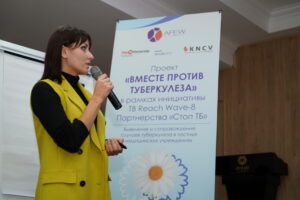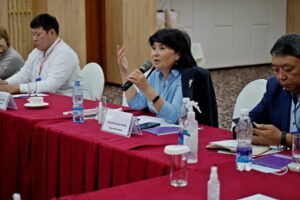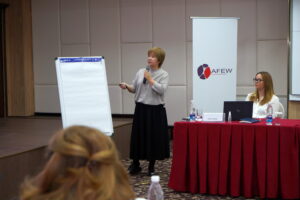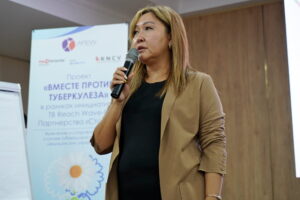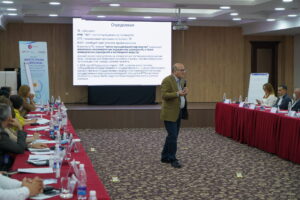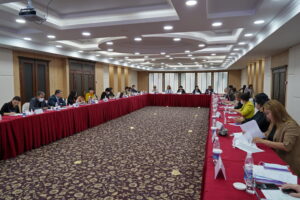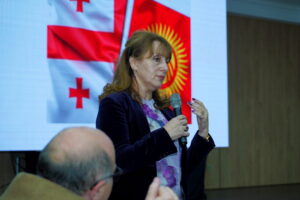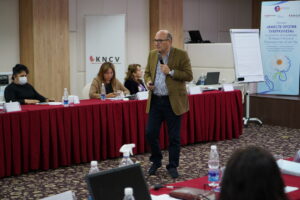On October 14-16, in Kyrgyzstan, AFEW International, together with AFEW-Kyrgyzstan and KNCV-Kyrgyzstan, organised a workshop on “Engagement of private health care providers in Tuberculosis project of Kyrgyzstan”. The event took place within the framework of the project “Together Against Tuberculosis (TB)” funded by the TB Reach Wave 8 initiative of Stop TB Partnership/UNOPS.
In 2020, the Stop TB Partnership approved 13 new TB Reach Wave 8 projects to engage private service providers in the fight against TB for a total of $5.7 million. In addition to Kyrgyzstan, organisations from India, Kenya, Mozambique, Nigeria, Pakistan, the Philippines, South Africa, Uganda and Tanzania received funding. The Together Against TB project aims to increase the number of TB cases detected through private health facilities.
A total of 30 participants attended the workshop in Kyrgyzstan, including participants from MoH Kyrgyzstan, representatives of private health care providers, doctors from National TB Program, representatives from NGOs, international experts.
The goal of the workshop was to explore the experience of different countries in engagement of private health care providers in TB project implementation, Public-Private Mix (PPM), analyze pros and cons, provide recommendations, and promote PPM in Kyrgyzstan.
International experts virtually and/or in person shared their country experience in PPM. For example, an expert from Pakistan explained all steps how PPM for TB was implemented in his country. He stated that in spite of numerous challenges only 5% of private facilities are involved in PPM but they report around 20-25% of all TB cases.
A specialist from India reported that India has long, almost 20 years’ experience and private clinics report around 30% of all TB cases. Attendees of the workshop also heard experience from colleagues from Kazakhstan and Georgia.
In the third day of the workshop representatives of NTP, MoH, NGOs and international experts considered the further steps of PPM implementation. Guests discussed a huge role of mass media, how to improve knowledge of private health providers about TB, importance of their involvement in TB project, how to motivate and engage them in PPM. It was decided to create working group in PPM, write the national PPM plan and request donor organizations to support continuation and expansion of PPM in Kyrgyzstan.
For reference
Tuberculosis is a major public health problem in Eastern Europe and Central Asia. The EECA region has the highest prevalence of multidrug-resistant tuberculosis (MDR-TB) and extensively drug-resistant tuberculosis (XDR-TB), which are not amenable to first-line therapy. The prevalence of TB in the region and the growing problem of MDR-TB make prevention, treatment and care among people living with HIV extremely important, especially during COVID-19. In Kyrgyzstan, according to statistics from the National Statistical Committee of the Kyrgyz Republic, there were 3,518 cases of active tuberculosis in the country in 2020. Overall, the mortality rate from tuberculosis in the Republic has been declining in recent years, according to NFP data for 2020. The number was 3.9 per 100,000 population compared to 6.7 per 100,000 population in 2016.

